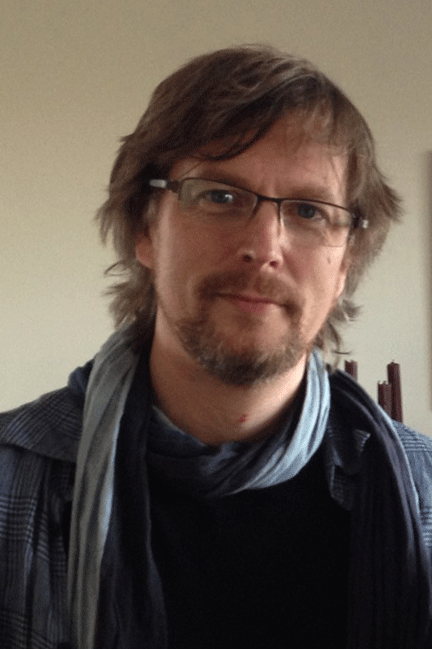Classic work translated into Cree
It was a Kabuki performance of Beowulf that got Frank Klaassen thinking about how different cultures interpret classic works and bring new perspectives.
By Colleen MacPherson "What was stunning," said Klaassen of the reading in the Japanese style of theatre, "wasn't that it was accurate, because it wasn't, but the performance brought out aspects of Old English that we hadn't thought of before."
"What was stunning," said Klaassen of the reading in the Japanese style of theatre, "wasn't that it was accurate, because it wasn't, but the performance brought out aspects of Old English that we hadn't thought of before."That performance planted the seed in Klaassen, an associate professor in the Department of History, to translate another Old English poem, The Wanderer, into Cree. The translated title is Swa cwæð eardstapa.
"We chose The Wanderer because it is short at 115 lines and is one of the central texts of the Old English corpus," he explained. "It is about a person cut off from their kith and kin, from everything important to them. It really speaks to the human condition, not because everyone experiences this kind of tragedy, but because it illustrates how important our own cultures and traditions are
to us."
With funding from the Interdisciplinary Centre for Culture and Creativity, the College of Arts and Science, and the University Conference Fund, Arok Wolvengrey from First Nations University of Canada and translator Jean Okimāsis worked together with Klaassen and fellow medievalists Michael Cichon from St. Thomas More College and John Moffat in the College of Engineering's School of Professional Development, to translate the poem over the summer. Students in Cichon's Old English class also helped by assembling lists of all the possible meanings of the original words.
"The obvious outcomes will be a published Cree translation of this work. On Oct. 6 we will also do a public trilingual reading of the poem in Old English, modern English and Cree. Less obviously, we want to discover what Aboriginal culture brings to this text and what can we learn by translating this into Cree."
The group hopes this project helps to recognize the importance of Cree language in Saskatchewan and Canada. "My hope is that this will also contribute to the Cree library, but it will be up to the listeners and readers to decide whether it is valuable or not."
Finally, Klaassen continued, the project hopes to determine "if it is worth doing this again. We are going to hold a roundtable discussion and talk about the process and what we learned. I think it has already paid off. It was challenging and interesting and we are all interested in doing this again but the conversation we hope it generates will be a very important part of making that decision."
The project, he continued, is ideally suited for a university; "Where else is this kind of conversation and exchange possible?"

